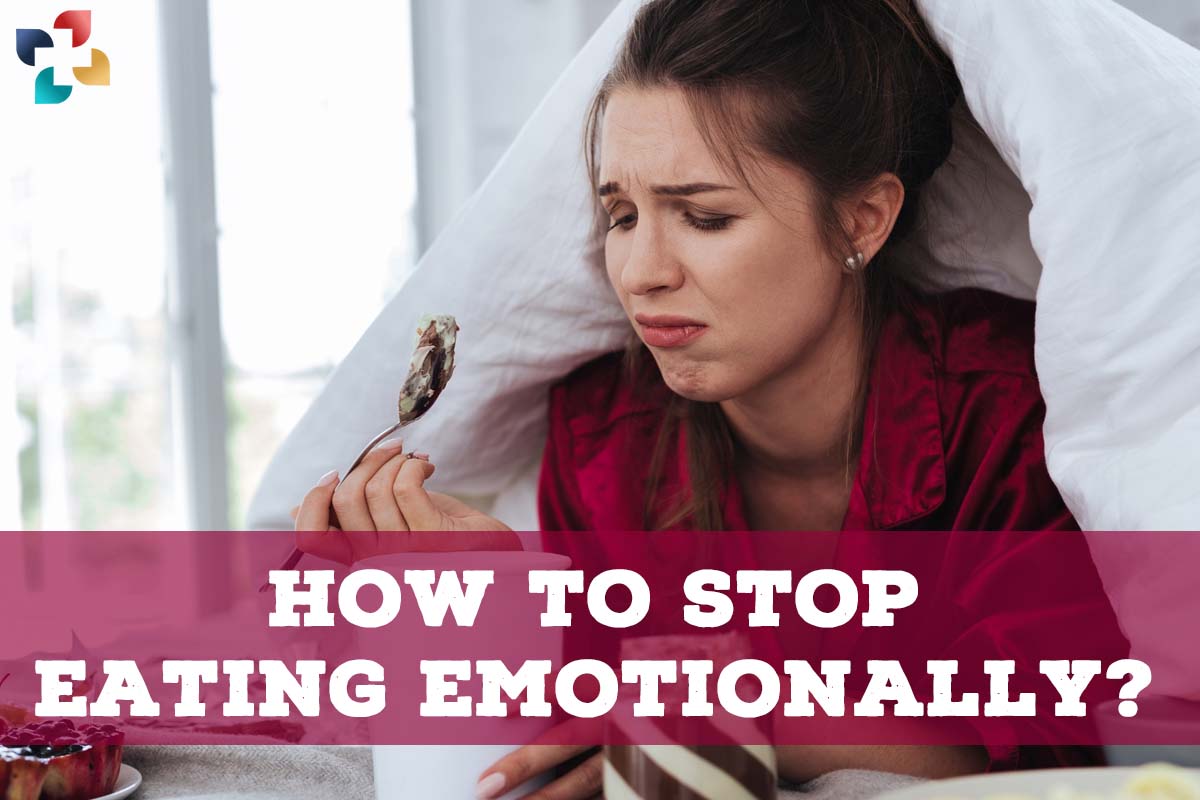Emotional eating is a common problem among people of all ages and genders. It refers to the tendency to eat in response to emotional triggers such as stress, boredom, loneliness, or anxiety, rather than in response to physical hunger. Emotional eating can lead to overeating, weight gain, and other health problems. Therefore, it is essential to identify the triggers and learn how to stop eating emotionally. In this article, we will discuss various strategies that can help you to stop eating emotionally.
Here is how to stop eating emotionally;
1.IDENTIFY THE TRIGGERS
The first step to stop eating emotionally is to identify the triggers that cause you to eat. Emotional eating can be triggered by different emotions, situations, or events. For example, you may feel like eating when you are stressed, anxious, bored, or lonely. You may also feel like eating when you are watching TV, surfing the internet, or doing any other activity that is not related to food. By identifying your triggers, you can learn to avoid or manage them and develop healthier coping strategies.
2.KEEP A FOOD DIARY

Keeping a food diary can help you to identify the triggers and patterns of emotional eating. In your food diary, write down everything you eat and drink, the time, and the reason why you are eating. Be honest with yourself and write down even the smallest details, such as the size of the portion, the texture, and the taste of the food. You can also record your mood before and after eating. This will help you to see the connection between your emotions and you may stop eating emotionally.
3.FIND ALTERNATIVE COPING STRATEGIES
Emotional eating is often a coping mechanism for dealing with stress, anxiety, or other negative emotions. Therefore, it is essential to find alternative coping strategies that can help you to manage your emotions in a healthier way. Some effective coping strategies include:
1.Exercise:
Exercise is an excellent way to relieve stress and boost your mood. It can also help you to reduce your appetite and control your cravings.
2.Meditation:

Meditation is a powerful tool for reducing stress and anxiety. It can also help you to develop mindfulness and self-awareness, which can help you to identify your emotional triggers and manage them more effectively.
3.Social support:
Having a strong social support system can help you to cope with stress and other negative emotions. You can talk to your friends, family, or a therapist about your feelings and get support and advice.
4.Hobbies:
Engaging in hobbies or activities that you enjoy can help you to relax and distract your mind from food cravings. For example, you can read a book, listen to music, or practice a craft.
5.Self-care:
Practicing self-care activities such as taking a relaxing bath, getting a massage, or practicing yoga can help you to reduce stress and take care of your emotional and physical well-being.
6. Avoid triggers
Once you have identified your emotional eating triggers, it is essential to avoid or manage them as much as possible. For example, if you tend to eat when you are stressed, you can try to reduce your stress levels by practicing relaxation techniques such as deep breathing or progressive muscle relaxation. You can also try to avoid stressful situations or plan ahead to cope with them more effectively.
4. CREATE A HEALTHY EATING PLAN
Creating a healthy eating plan can help you to stop eating emotionally. A healthy eating plan should include:
1.Balanced meals:
Make sure your meals contain a balance of protein, healthy fats, and complex carbohydrates. This can help you to feel fuller for longer and reduce your cravings.
2.Healthy snacks:
Choose healthy snacks such as fruits, vegetables, nuts, or low-fat dairy products. This can help you to control your appetite and avoid overeating.
3.Mindful eating:
Practice mindful eating by paying attention to your food and eating slowly. This can help you to enjoy your food more and feel more satisfied, which can reduce your cravings.
4.Portion control:
Control your portion sizes by using smaller plates, measuring your food, or using portion control containers. This can help you to eat less and avoid overeating.
5.Plan ahead:
Plan your meals and snacks ahead of time, so you are prepared and less likely to make impulsive food choices. This can also help you to avoid situations where you may be tempted to eat emotionally, such as skipping meals or eating out of convenience.
5. PRACTICE MINDFUL EATING
Mindful eating is a technique that can help you to develop a healthier relationship with food. It involves paying attention to your food and eating slowly, without distractions such as TV or phone. Mindful eating can help you to enjoy your food more, be more aware of your hunger and fullness signals, and reduce your cravings. To practice mindful eating, follow these steps:

- Sit down at a table and remove all distractions such as TV or phone.
- Take a few deep breaths and become aware of your body and your surroundings.
- Look at your food and appreciate its colors, textures, and aromas.
- Take a small bite and chew slowly, savoring the taste and texture of the food.
- Put your utensil down between bites and take a few breaths.
- Pause halfway through your meal and check in with your body. Are you still hungry or satisfied? Adjust your portions accordingly.
- Finish your meal slowly and take a few more deep breaths.
6. Seek professional help
If you find that emotional eating is interfering with your daily life and causing you significant distress, it may be helpful to seek professional help. A therapist or counselor can help you to identify the underlying causes of your emotional eating and develop effective coping strategies. They can also provide support and guidance as you work towards your goals.
BOTTOM LINE
Emotional eating can be a challenging habit to break, but it is possible with the right strategies and mindset. By identifying your triggers, finding alternative coping strategies, avoiding triggers, creating a healthy eating plan, practicing mindful eating, and seeking professional help if needed, you can learn to stop eating emotionally and develop healthier habits that support your overall health and well-being. Remember, changing habits takes time, so be patient with yourself and celebrate your progress along the way.







